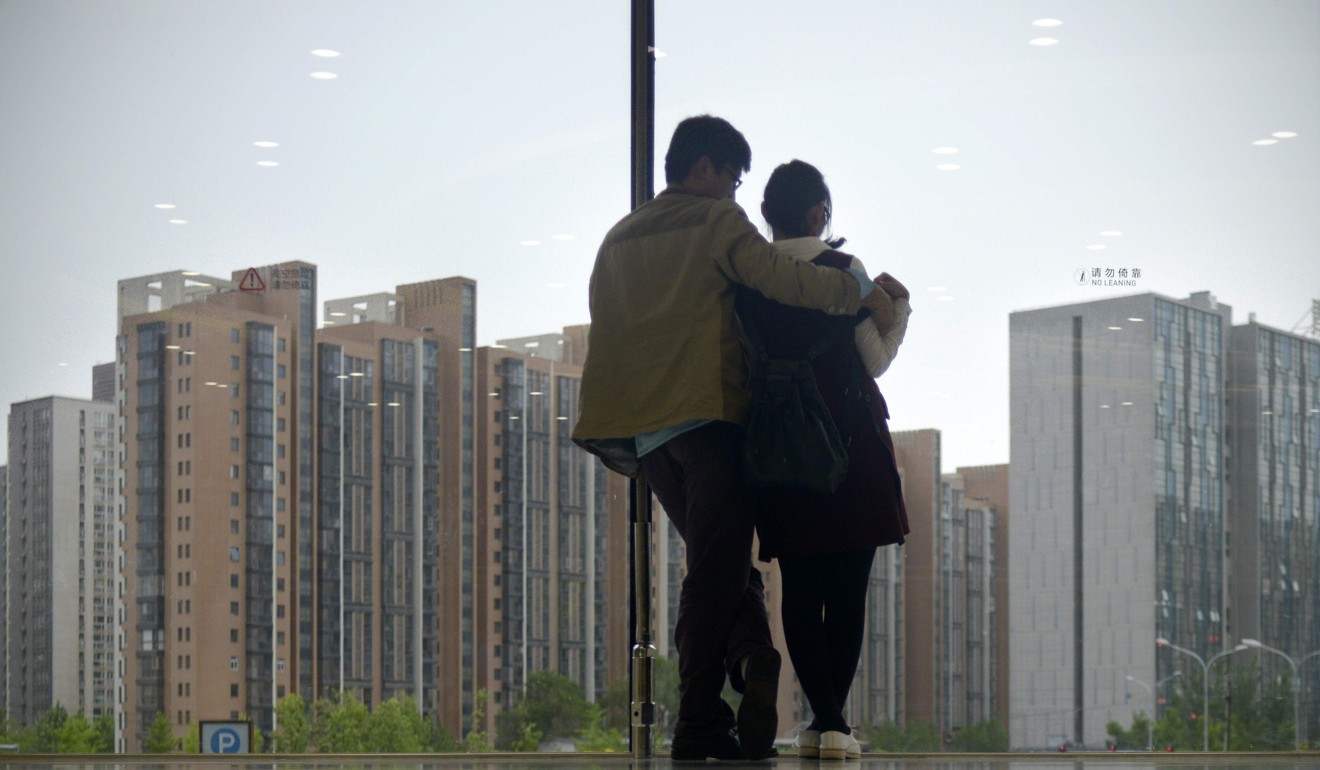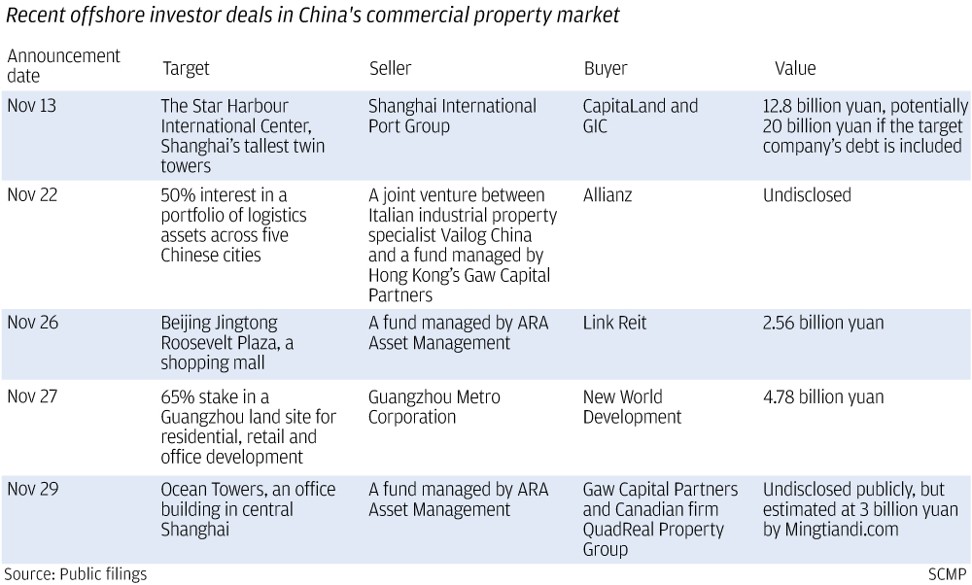
Foreign buyers increase share of China commercial property deals, spend US$3 billion in three weeks
- Overseas investors’ share of commercial property deals in Beijing could rise to 40 per cent for 2018, a record high
- In third quarter, overseas investors accounted for 66.5 per cent of commercial property deals in Shanghai; in China as a whole, cross-border transactions stood at US$5 billion, or 22 per cent of the total
Overseas investors, mostly from Hong Kong, have cornered a large share of mega commercial property deals in mainland China, with their share of the pie surging to record levels in Beijing as well as Shanghai.
These investors have spent more than 23 billion yuan (US$3.3 billion) in at least five publicly announced deals involving commercial property in the past three weeks, even as local investors find themselves curtailed by Beijing’s credit tightening policy. These deals include one each in Beijing and Guangzhou, two in Shanghai and one involving a portfolio of assets across five cities.
China’s commercial property prices to fall next year as the liquidity crunch inflicts more pain on the industry
And according to Grant Ji, head of CBRE North China’s capital markets, in Beijing, with three deals recently announced and a few more in the pipeline, the share of overseas investors could rise to 40 per cent for 2018, an unprecedented level for China’s capital city.
“Local competitors’ hands are tied by tight financing conditions, stricter approval [processes] and property market curbs, while overseas investors have an edge, such as access to international funds and shorter procedures,” he said.
“Sellers are keen on international investors, as they have become less confident about local bidders.”
In a deal Ji helped close last week, a shopping centre worth 2.56 billion yuan in Beijing’s Tongzhou district was sold to Hong Kong-based Link Reit. The transaction, the largest for a single retail asset in Beijing this year, took just five months, and not the nine to 15 months it usually takes in the city.
Overseas investors have an edge, such as access to international funds and shorter procedures
The mall, a mature property generating a steady annual cash flow of more than 100 million yuan, was immensely popular, with “any major mall investor in Beijing you can imagine” showing interest, according to Ji. Link Reit, which owns another mall in Beijing and could execute the transaction overseas, won out in the end because of its “deeper understanding of the property market, greater determination and the ability to close the transaction in a timely and simple manner”, said Ji.
Commercial property transactions have long been a stronghold of domestic investors. But data from Cushman & Wakefield shows that in Shanghai, the share of overseas investors – mainly private equity firms from the United States and Hong Kong – surged to 66.5 per cent in the third quarter, its highest level since 2016. In China as a whole, in the first three quarters, cross-border transactions stood at US$5 billion, or 22 per cent of the total, according to Real Capital Analytics.
Foreign investors are stepping into China’s real estate, propping up a market where local companies were once king
Hong Kong-based private equity firm Gaw Capital Partners said last week it had partnered with the Vancouver-based QuadReal Property Group to acquire a 25-storey grade A office building in central Shanghai. It said it would leverage its experience in redesigning and repositioning properties to enhance the office building’s asset value and attract new tenants.
Humbert Pang, head of China at Gaw Capital, said he believed any mature investor with a strong financial profile and asset management capabilities could get involved. “It is not just offshore investors, but any one with better access to financing and the ability to bring added value, instead of just investing and collecting rent. We have been in this market for many years and know leasing demand here well,” he said.

Both Ji and Pang said that going forward much depended on local competitors reasserting themselves, which in turn depended on financing conditions and the overall economy.
“If the direction of the trade war becomes more clear and financing curbs are eased a bit, domestic competitors could return and overseas investors’ opportunities may shrink again. But if the [current] conditions continue, overseas investors’ edge remains,” said Ji.
For instance, the property investment arm of German insurer Allianz is among the most active foreign buyers in China. This year it has announced several deals, the latest being a 50 per cent stake in a portfolio of logistics assets in Shanghai, Jiaxing, Foshan, Wuhan and Shenyang. The company said the US-China trade war had had little impact on its investment decisions.
“As a long-term investor we take a long-term view across the globe. In that perspective, China stands out in terms of growth potential for the next 10 to 20 years,” said Rushabh Desai, the chief executive for Asia-Pacific at Allianz Real Estate.
Global investors find Chinese commercial property ripe for the taking as tight funding holds back local buyers
When asked if 2019 will be a bigger year than this, Desai said it depended on what opportunities came to the market. But from the point of view of allocations, he would like to deploy 40 per cent of the company’s Asia portfolio in China.


